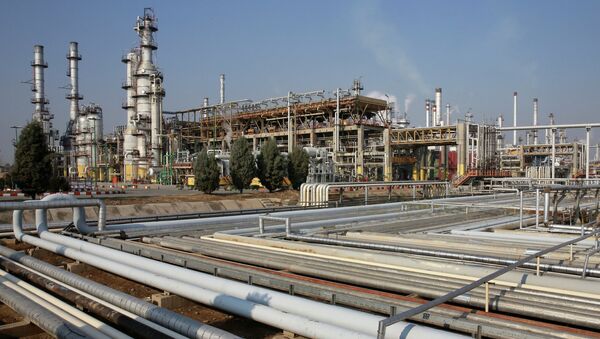Iran’s nuclear agreement with six world powers last week opened the way for the removal of economic restrictions on the Islamic Republic, including on its oil and gas trade.
Halqi told Sputnik that Damascus and Tehran were planning to step up their bilateral cooperation in all major economic sectors, from agriculture and transport to energy.
When asked to put a price tag on the planned joint projects, Halqi said that they had estimated $1 billion in healthcare and social programs, and $3.6 billion in oil and gas projects. "More projects are on the way," the prime minister added.
"In the foreseeable future, we expect to work on joint projects in tourism, the oil and gas sector, electric energy and transport infrastructure," Halqi told Sputnik.
Syria and Iran have a history of cooperation, Halqi said. The nuclear deal, agreed in Vienna earlier in July, will unlock $150-170 billion in Iranian foreign assets that will boost its economy and present it with an opportunity to help partner nations in the region, he noted.
The comprehensive Iran nuclear deal was signed by Tehran and the world powers in the Austria capital on July 14 after over two weeks of talks and multiple extensions of self-imposed deadlines. Tehran finally agreed to curb its nuclear research in exchange for sanctions relief.



